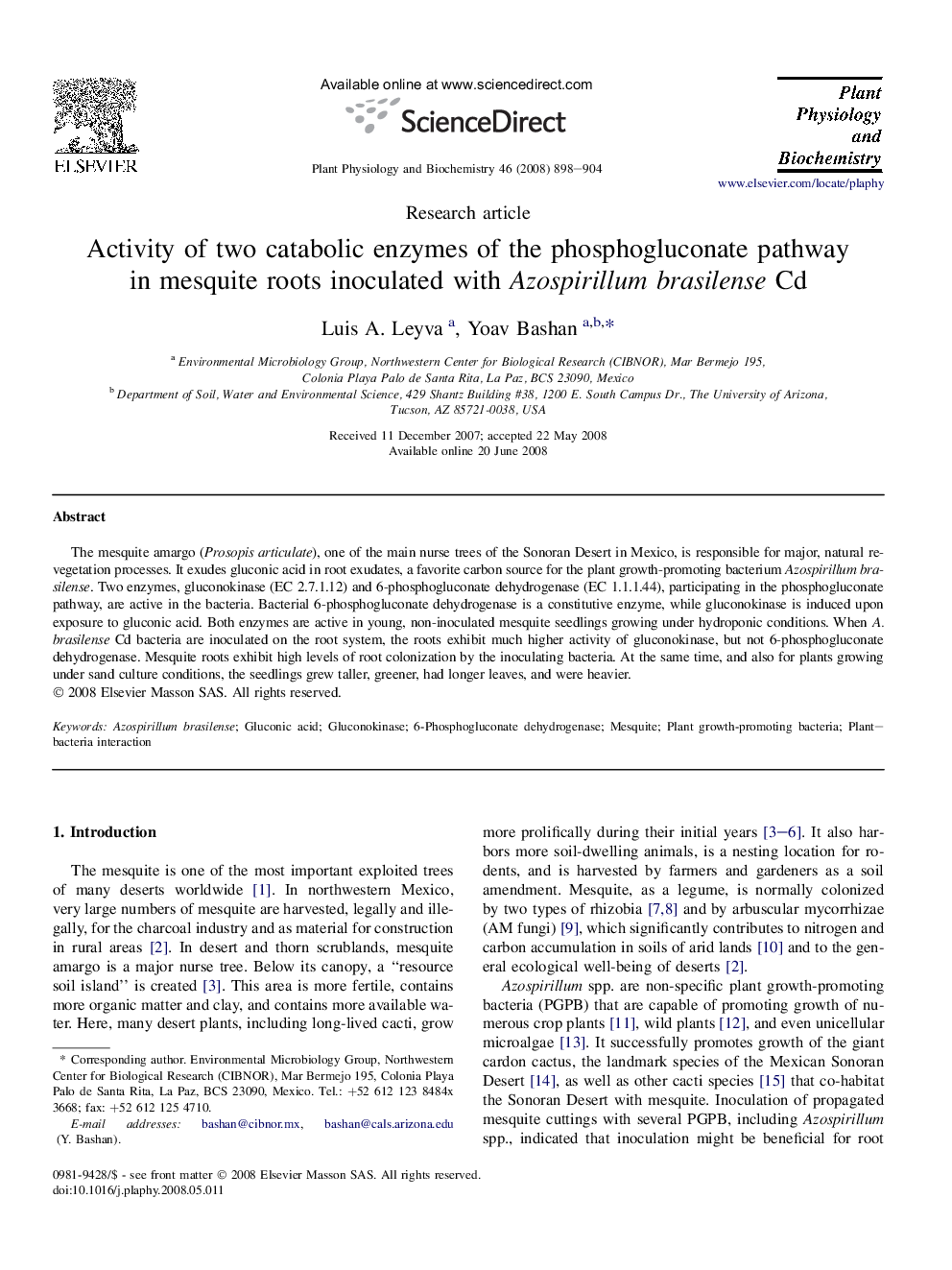| Article ID | Journal | Published Year | Pages | File Type |
|---|---|---|---|---|
| 2015457 | Plant Physiology and Biochemistry | 2008 | 7 Pages |
The mesquite amargo (Prosopis articulate), one of the main nurse trees of the Sonoran Desert in Mexico, is responsible for major, natural re-vegetation processes. It exudes gluconic acid in root exudates, a favorite carbon source for the plant growth-promoting bacterium Azospirillum brasilense. Two enzymes, gluconokinase (EC 2.7.1.12) and 6-phosphogluconate dehydrogenase (EC 1.1.1.44), participating in the phosphogluconate pathway, are active in the bacteria. Bacterial 6-phosphogluconate dehydrogenase is a constitutive enzyme, while gluconokinase is induced upon exposure to gluconic acid. Both enzymes are active in young, non-inoculated mesquite seedlings growing under hydroponic conditions. When A. brasilense Cd bacteria are inoculated on the root system, the roots exhibit much higher activity of gluconokinase, but not 6-phosphogluconate dehydrogenase. Mesquite roots exhibit high levels of root colonization by the inoculating bacteria. At the same time, and also for plants growing under sand culture conditions, the seedlings grew taller, greener, had longer leaves, and were heavier.
